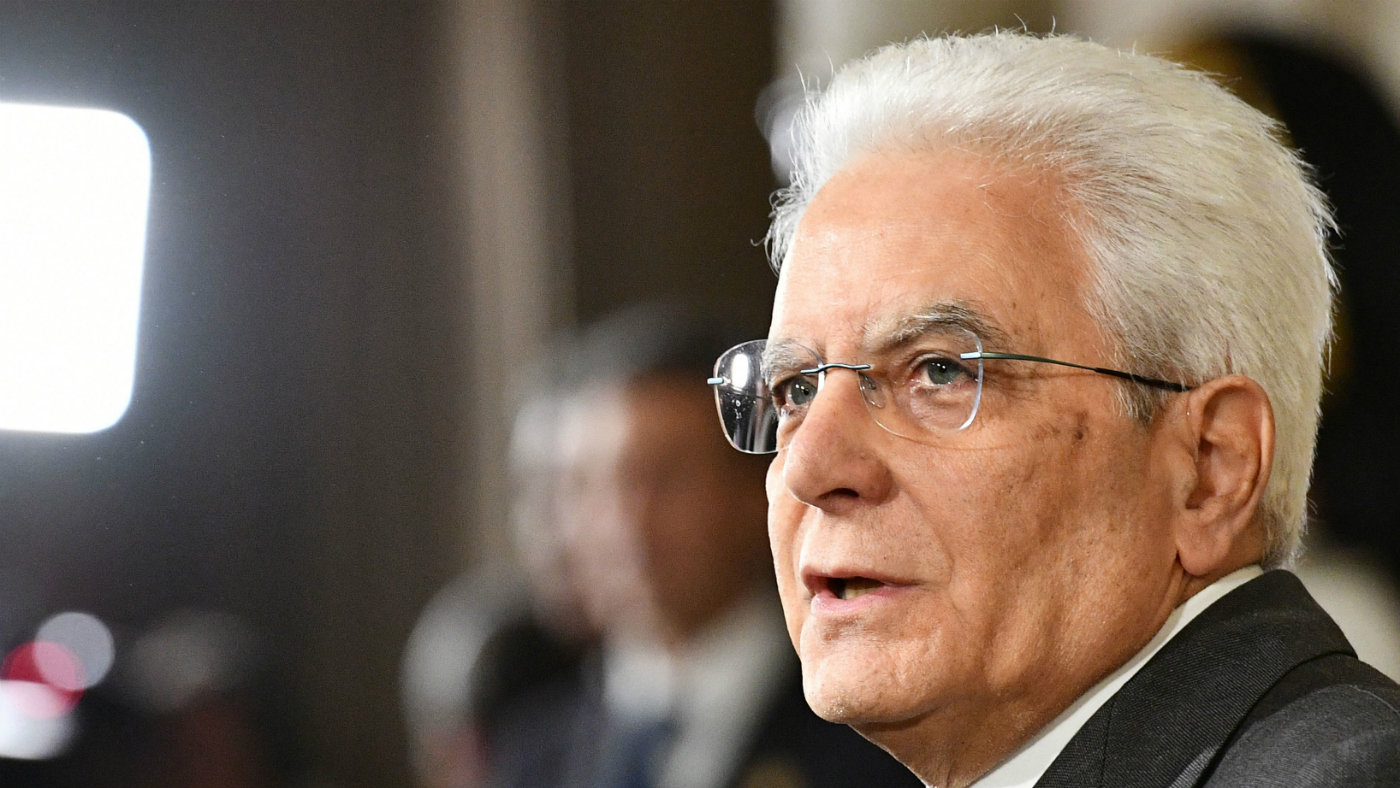Italy's political crisis: why fresh elections loom
Analysts predict a snap vote later this year could serve as an unofficial referendum on EU membership

A free daily email with the biggest news stories of the day – and the best features from TheWeek.com
You are now subscribed
Your newsletter sign-up was successful
Voters in Italy are expected to head to the polls for a second time this year amid an escalating political crisis that could determine its future in the eurozone.
Prime minister-in-waiting Giuseppe Conte resigned on Sunday after President Sergio Mattarella vetoed the appointment of a eurosceptic cabinet minister, dashing an attempt to form a ruling coalition by two populist parties.
“Italy is no stranger to chaotic politics, government crises and revolving-door executives,” the Associated Press reports. “But recent developments were remarkable even by Italian standards.”
The Week
Escape your echo chamber. Get the facts behind the news, plus analysis from multiple perspectives.

Sign up for The Week's Free Newsletters
From our morning news briefing to a weekly Good News Newsletter, get the best of The Week delivered directly to your inbox.
From our morning news briefing to a weekly Good News Newsletter, get the best of The Week delivered directly to your inbox.
What triggered the crisis?
Italy has been without a government since the general election in March ended in a hung parliament, with the Five Star party gaining the highest vote share but missing out on a majority.
The eurosceptic, anti-establishment and anti-immigrant party was seeking to establish a coalition with the far-right Lega (formerly the Northern League).
But Matterella’s decision to block Paolo Savona, an outspoken critic of the EU, from becoming finance minister led to Conte’s resignation and deepened the country’s political crisis yesterday.
A free daily email with the biggest news stories of the day – and the best features from TheWeek.com
The President has appointed ex-IMF economist Carlo Cottarelli as caretaker prime minister, angering both populist parties.
“Cottarelli will ask for a vote of confidence to govern long enough to approve a budget and push new elections to early 2019,” says Quartz. “If he doesn’t receive enough support, which is likely, new elections will be called after the summer.”
What happens next?
The Five Star party and the Lega have the power to block Cottarelli’s appointment and force a snap vote – and have promised to do so.
They have also accused the President of subverting Italian democracy and called for his impeachment.
“Why don't we just say that in this country it’s pointless that we vote, as the ratings agencies, financial lobbies decide the governments?” said Five Star leader Luigi Di Maio.
The BBC says early elections are “exactly what the two populist parties want, giving them a chance to rally support behind their claim that the Italian and the wider European establishments are getting in the way of the will of the people.”
Analysts also predict that the vote may serve as an unofficial referendum on Italy’s future membership of the EU.
“The election is going to resemble a referendum, de facto, on the European Union and the euro,” Francesco Galietti, head of political risk consultancy Policy Sonar in Rome, told Reuters. “It’s an existential threat for the entire euro zone.”
-
 Political cartoons for February 15
Political cartoons for February 15Cartoons Sunday's political cartoons include political ventriloquism, Europe in the middle, and more
-
 The broken water companies failing England and Wales
The broken water companies failing England and WalesExplainer With rising bills, deteriorating river health and a lack of investment, regulators face an uphill battle to stabilise the industry
-
 A thrilling foodie city in northern Japan
A thrilling foodie city in northern JapanThe Week Recommends The food scene here is ‘unspoilt’ and ‘fun’
-
 Epstein files topple law CEO, roil UK government
Epstein files topple law CEO, roil UK governmentSpeed Read Peter Mandelson, Britain’s former ambassador to the US, is caught up in the scandal
-
 Iran and US prepare to meet after skirmishes
Iran and US prepare to meet after skirmishesSpeed Read The incident comes amid heightened tensions in the Middle East
-
 Grok in the crosshairs as EU launches deepfake porn probe
Grok in the crosshairs as EU launches deepfake porn probeIN THE SPOTLIGHT The European Union has officially begun investigating Elon Musk’s proprietary AI, as regulators zero in on Grok’s porn problem and its impact continent-wide
-
 Israel retrieves final hostage’s body from Gaza
Israel retrieves final hostage’s body from GazaSpeed Read The 24-year-old police officer was killed during the initial Hamas attack
-
 China’s Xi targets top general in growing purge
China’s Xi targets top general in growing purgeSpeed Read Zhang Youxia is being investigated over ‘grave violations’ of the law
-
 Panama and Canada are negotiating over a crucial copper mine
Panama and Canada are negotiating over a crucial copper mineIn the Spotlight Panama is set to make a final decision on the mine this summer
-
 Europe moves troops to Greenland as Trump fixates
Europe moves troops to Greenland as Trump fixatesSpeed Read Foreign ministers of Greenland and Denmark met at the White House yesterday
-
 Why Greenland’s natural resources are nearly impossible to mine
Why Greenland’s natural resources are nearly impossible to mineThe Explainer The country’s natural landscape makes the task extremely difficult